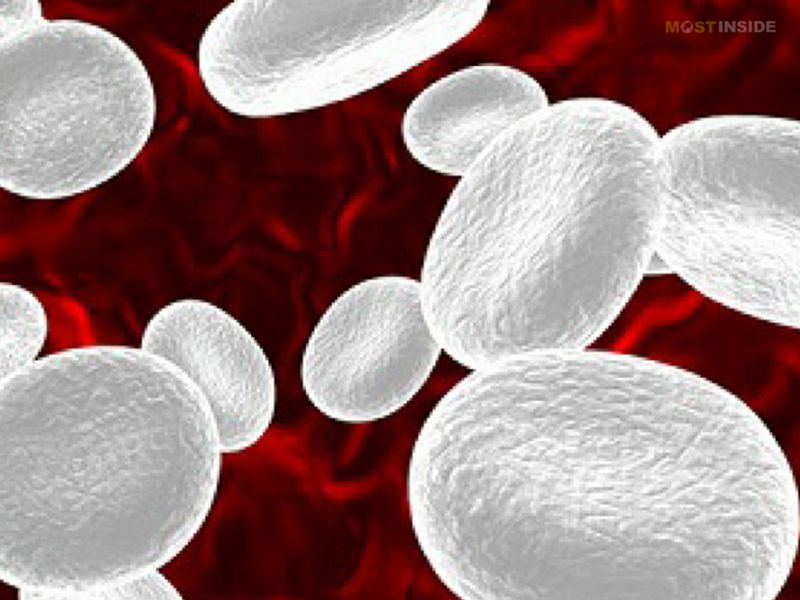How to Boost White Cell Count?
This post was last updated on July 9th, 2024
What is White Blood Cell (WBC)?
White blood cells (WBCs) are also called leukocytes and are an important part of the human body’s immune system. These cells help to fight against infections by attacking bacteria, viruses, and germs that pervade the body. The White blood cells originate in the bone marrow and circulate throughout the bloodstream. There are five fundamental types of white blood cells neutrophils, lymphocytes, eosinophils, monocytes and basophils. And low blood white cell count is a serious call to boost white cell count in every possible way.
What is White Blood Cell Count?
The White blood cells which are produced in the bone marrow typically work as part of the immune system to fight against bacterial and viral infections. However “normal” white blood cell count is usually between 4,500 to 10,000 white blood cells (WBCs) per microliter of blood. Those who have 3,500 or less may be considered to have a low WBC and called as neutropenia. A WBC of less than 1,000 is generally always considered very low and is an indication of a serious infection risk.
Moreover if any blood test shows low levels of WBC, other symptoms may include fatigue, recurrent infections that are very tough to treat, shortness of breath, and weakness. And more serious symptoms of less WBC count which indicates serious medical attention includes fever, swollen lymph nodes, sore throat, and skin lesions. And even a low WBC can exist without any outside symptom. A WBC count is a test for measuring the number of white blood cells in your body. This test is often includes a complete blood count (CBC).
What Causes Low White Blood Cell Count?
A low white blood cell count usually is caused due to many reasons, such as:
- Viral Infections
- Congenital disorders
- Cancer or other diseases that damage bone marrow
- Autoimmune disorders
- Drugs that destroy white blood cells or damage bone marrow
- Aplastic anemia
- Chemotherapy
- HIV/AIDS
- Hypersplenism, a premature destruction of blood cells by the spleen
- Infectious diseases
- Kostmann’s syndrome, a congenital disorder involving low neutrophil production
- Leukemia
- Lupus
- Malnutrition
- Myelodysplastic syndromes
- Myelokathexis, a congenital disorder involving failure of neutrophils to enter the bloodstream
- Parasitic diseases
- Radiation therapy
- Vitamin deficiencies
How to Boost White Cell Count?
White blood cells are the most essential factor of the immune system People whose immunity is compromised, through diseases such as AIDS, cancer or hepatitis, may suffer low white blood cell count. Inadequate or low levels of white blood cells make the patients more prone to infections, which can be dangerous. Proper diet and medications can help to boost white blood cell count in some people.
1. Add garlic to your diet
A recent study showed that the rats who were fed with garlic showed a significant increase in total white blood cell count. Garlic also increases the ability of WBC to fight against infections and also stimulates other immune cells.
2. Yogurt in diet
Probiotics intake leads to stronger immune system which boosts the WBC. A recent experiment where almost 500 people aged 18-67 were given with probiotics in their diet and over three months they suffered fewer colds and fever.
3. Folic acid intake
Human body needs more folic acid to generate and increase more white blood cells. Actually the excess intake of folic acid comes with a side effect that is increase in white blood cells. Deficiency of folic acid can also lead to Anemia which is a low level of red blood cells. Dried beans, lentils, peas, spinach, broccoli, turnip greens, okra and citrus fruits are rich source of folic acid.
Recommended: Benefits of Highly Fibrous Diet
4. Zinc supplements
Zinc is the popular immune booster which increases the production of white blood cells. According to latest study, a mild deficiency in zinc can weaken the immune system and increase the risk of infections. Oyesters, red meat of beef and lamb, wheat germ, whole grains, beans, nuts, spinach, cereals and dairy products are rich in zinc supplements.
5. Selenim in diet
According to University of Maryland Medical Centre, selenim in diet can help amazingly to . Selenim prevents weak immune infections like flu, cold, viral fever etc. White button mushrooms, Brazil nuts, Pinto or Lima beans, chia seeds, brown rice, sunflower seeds, flax seeds, sesame seeds, broccoli, cabbage, spinach are some good source of selenim to add in diet.
Recommended For You
Could You Benefit from Physical Therapy?
Priyadarshini Muduli
A full time passionate writer with imperishable determination to bring healthy, smart and pragmatic changes individually and socially. Concentrate especially on lifestyle, life and personal improvement, relationships, mental health and behavior, viral issues and literature based subjects.





